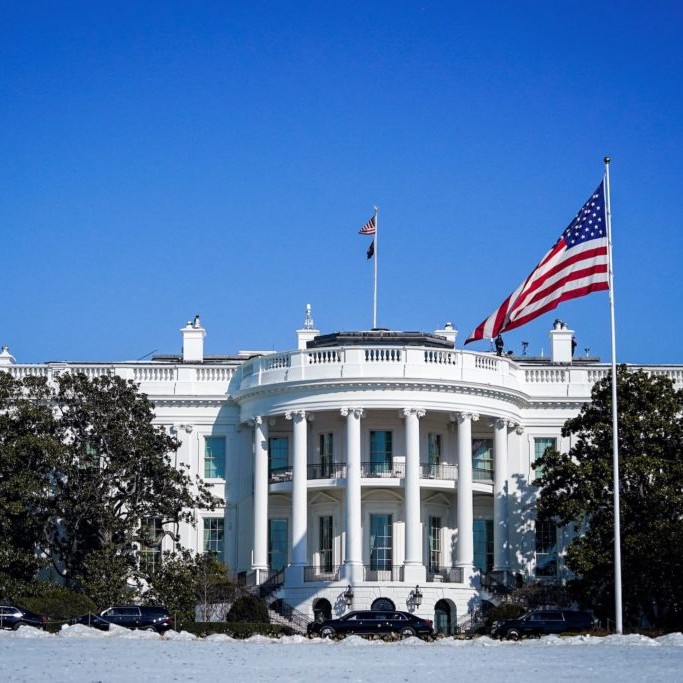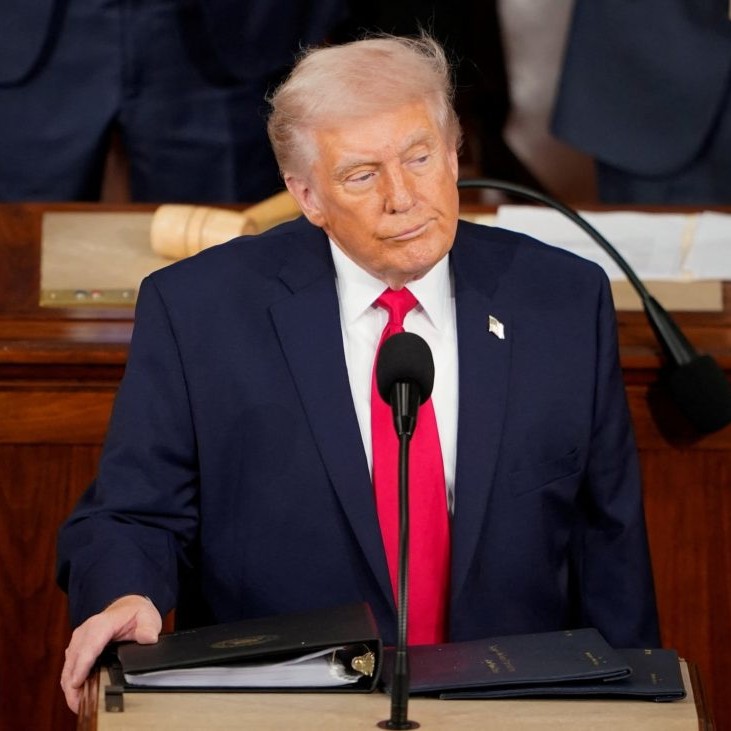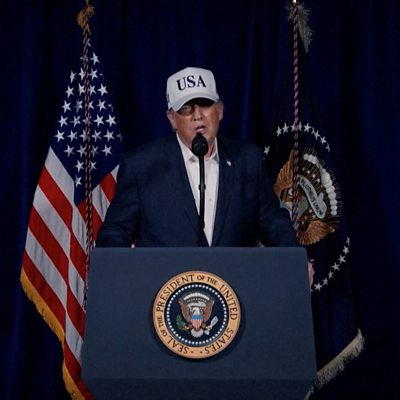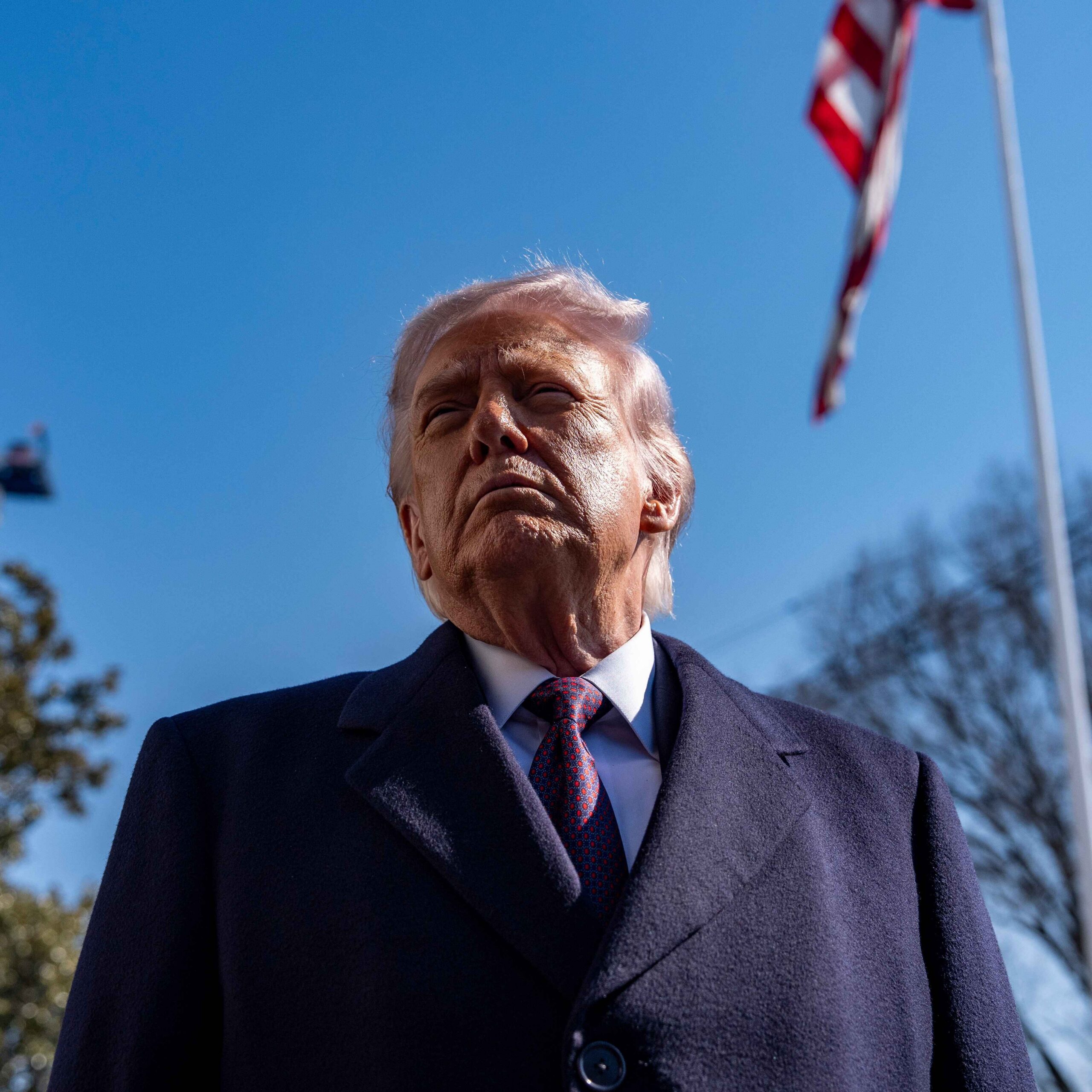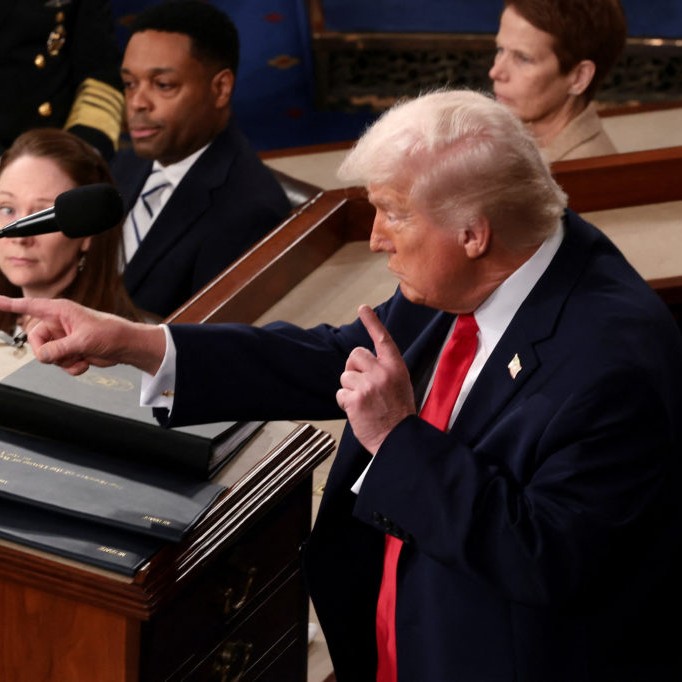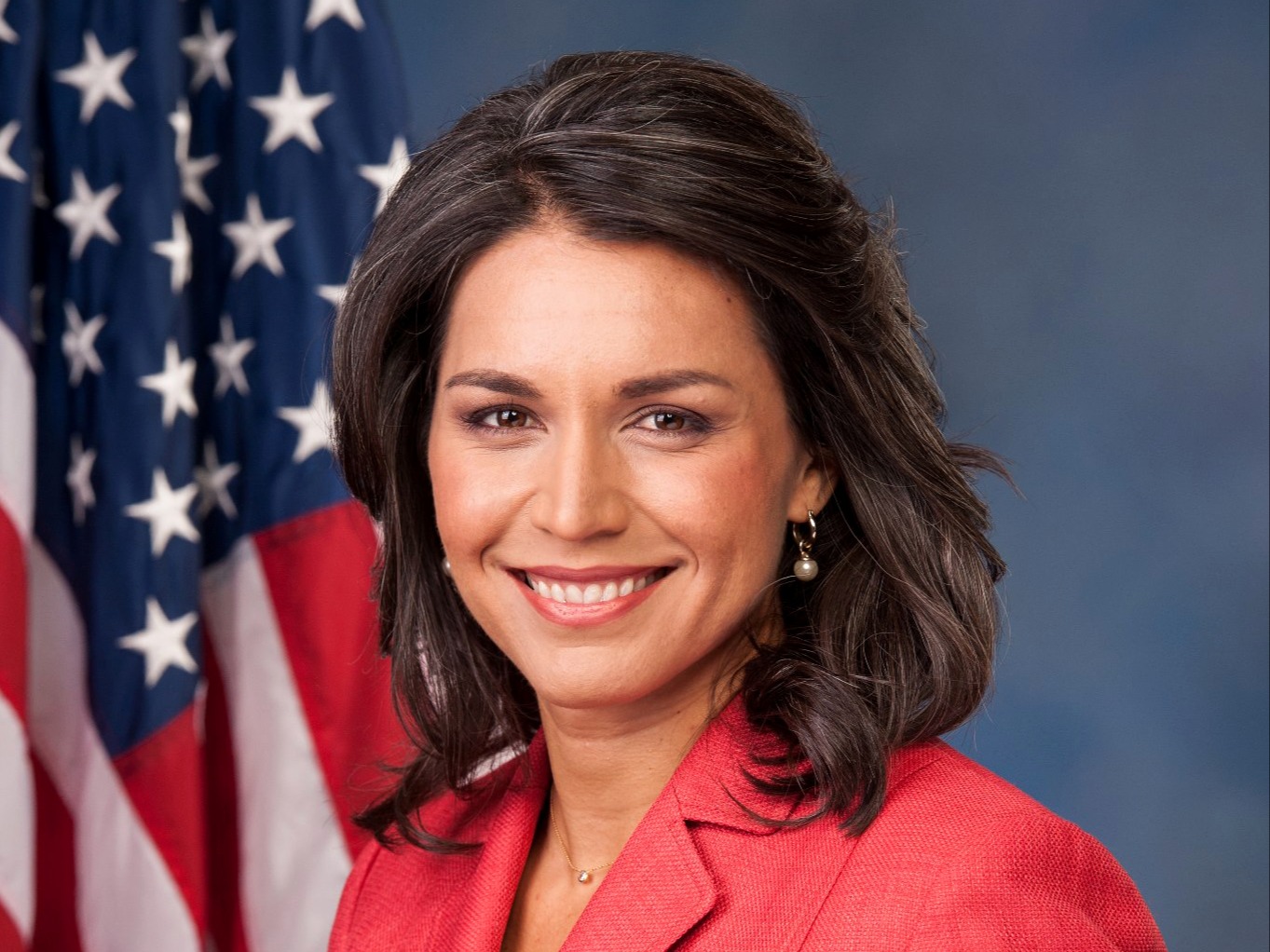
Official portrait of Tulsi Gabbard, 2013. Public domain.
Tulsi Gabbard’s political trajectory has been one of the most fascinating in modern American politics. Currently serving as a prominent political commentator, Gabbard has transitioned from being a U.S. Congress rising star within the Democratic Party to finding a home in the Republican sphere, aligning herself with President Donald Trump. From her beginnings as a trailblazing congresswoman to her recent role as a controversial figure in American politics, Gabbard’s journey is a complex tale of evolution, controversy, and reinvention.
A Historic Start in Politics
Tulsi Gabbard broke barriers early in her career. In 2013, she became the first Hindu and American Samoan elected to the U.S. Congress, representing Hawaii’s 2nd congressional district. Her military background added to her unique profile. Gabbard served two tours of duty in the Middle East as part of the Hawaii Army National Guard and holds the rank of lieutenant colonel. Her experience in Iraq profoundly influenced her non-interventionist foreign policy stance, which became a defining feature of her political identity (The Vets Project).
Gabbard’s initial appeal stemmed from her independent spirit. She supported Bernie Sanders during the 2016 presidential primary, earning admiration from progressives while frustrating Democratic leaders. Her decision to leave the Democratic National Committee (DNC) to endorse Sanders signaled her willingness to challenge the party establishment.
The Presidential Bid That Shifted Everything
Gabbard’s 2020 presidential campaign marked a turning point. Known for her unorthodox views, she criticized U.S. military interventions and questioned the Democratic Party’s foreign policy orthodoxy. While these positions resonated with some voters, her visit to meet Syrian President Bashar al-Assad drew widespread condemnation and accusations of aligning with authoritarian regimes (The Guardian).
In a surprising debate moment, Gabbard criticized Kamala Harris’s record as a prosecutor, garnering attention but also alienating Democratic allies. Her increasingly populist rhetoric led to speculation about her political future. In 2022, she left the Democratic Party.
A Rightward Shift
After leaving the Democratic Party, Gabbard leaned into her independent and anti-establishment persona. She became a prominent figure on Fox News, where she criticized the Biden administration’s policies and spoke out against U.S. support for Ukraine in its war with Russia. Gabbard’s statements, which echoed Russian talking points, sparked significant backlash and led to accusations of being sympathetic to Vladimir Putin (ABC News).
Gabbard also campaigned for Republican candidates during the 2022 midterms, including election deniers like Kari Lake. By 2024, she was firmly entrenched in the MAGA movement, endorsing Trump’s presidential campaign and moderating one of his town hall events.
Controversies and Cult Allegations
Throughout her career, Gabbard’s ties to the Science of Identity Foundation (SIF) have drawn scrutiny, as reported by Newsweek. The religious group, led by Chris Butler, has been described by critics as a cult. Gabbard has downplayed her connections to SIF, but former members have alleged that the group heavily influenced her political decisions and outlook. These ties resurfaced in 2024 amid her nomination for director of national intelligence in Trump’s potential administration, raising more questions about her suitability for the role (The Daily Beast).
The Nomination That Divided a Nation
In November 2024, Trump announced Gabbard as his pick for director of national intelligence. The decision shocked political observers. Critics questioned her qualifications, citing her lack of experience in intelligence and her controversial foreign policy stances. John Bolton, a former national security adviser, called the nomination “a left turn and off the bridge,” as reported by Yahoo News. (The Guardian).
Supporters argue that Gabbard’s outsider status and anti-establishment views make her a bold choice for the role, while opponents fear she could undermine the intelligence community’s credibility.
A Polarizing Figure
Tulsi Gabbard’s transformation from a Democratic congresswoman to a MAGA-aligned figure highlights the shifting landscape of American politics. Her story is one of adaptability and controversy, appealing to some as a voice of independence while alarming others with her associations and rhetoric.
As Gabbard continues to make headlines, her journey prompts questions about loyalty, ideology, and the role of maverick figures in a polarized political climate.
References: Tulsi Gabbard’s Ties to ‘Cult’ Could Cost Her Intel Job | Who is Tulsi Gabbard, Trump’s Pick for Director of National Intelligence? | Tulsi Gabbard’s Transition from Democrat to High-Profile Role with Trump’s Campaign Team | LTC Tulsi Gabbard (Army, OIF Veteran) | Tulsi Gabbard Has Lauded Religious Leader Accused of Running ‘Abusive’ Cult | Tulsi Gabbard’s Ties to ‘Cult’ Could Cost Her Intel Job
